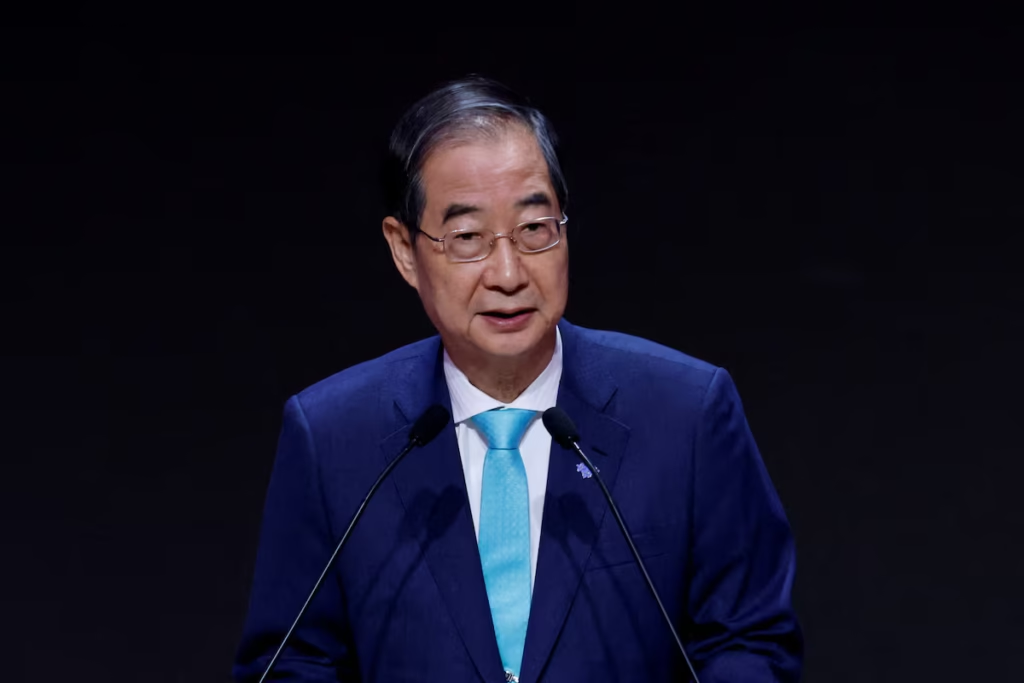South Korea’s acting president, Han Duck-soo, is under the threat of impeachment as the Constitutional Court begins its first hearing regarding President Yoon Suk Yeol’s controversial suspension. Yoon was impeached on December 14 following his declaration of a short-lived martial law, which sent shockwaves through South Korea’s political and economic landscape.

This unfolding political turmoil in Asia’s fourth-largest economy has unsettled global allies, including the United States and Europe, who viewed Yoon as a vital partner in addressing regional tensions involving China, Russia, and North Korea.
President Yoon’s martial law decree, imposed on December 3, banned parliamentary activities, restricted political parties, and placed the military under government control. The decree was rescinded just hours later after lawmakers voted against it, but the move triggered immediate backlash. Yoon’s suspension from office came after a defiant speech questioning election integrity and accusing opponents of collusion with North Korea.
Prime Minister Han Duck-soo assumed the role of acting president after Yoon’s impeachment. However, tensions have escalated as Han refused to appoint three Constitutional Court justices, citing his limited authority as a caretaker leader. The Democratic Party (DP), which holds a majority in parliament, accused Han of obstructing justice and called for his impeachment.
The DP has clashed with Han over critical issues, including investigations into Yoon’s martial law declaration and the appointment of special prosecutors. Party leaders claim Han’s actions amount to abuse of power, further deepening the leadership crisis.
Opposition leader Kwon Young-se of Yoon’s People Power Party warned that impeaching Han could spark a financial crisis. The South Korean won has already weakened to its lowest point since 2009, reflecting investor concerns over political instability.
The Constitutional Court now has 180 days to decide whether to reinstate Yoon or permanently remove him from office. If Yoon is ousted, South Korea must hold a new presidential election within 60 days.
Yoon has refused to acknowledge court communications, contrasting with the cooperative stances of previous impeached presidents. A court spokesperson confirmed the hearings would proceed regardless of Yoon’s participation.
If Han is impeached, the finance minister will take over as acting president. Legal experts remain divided over whether a simple majority or two-thirds vote is required for his impeachment.
The martial law scandal and subsequent impeachment votes have triggered political unrest, undermining confidence in South Korea’s democratic institutions. The country’s economic markets have also been rattled, with analysts warning of prolonged negative sentiment amid uncertainty.
President Yoon and senior officials now face criminal investigations for insurrection, further complicating the nation’s path toward stability.



